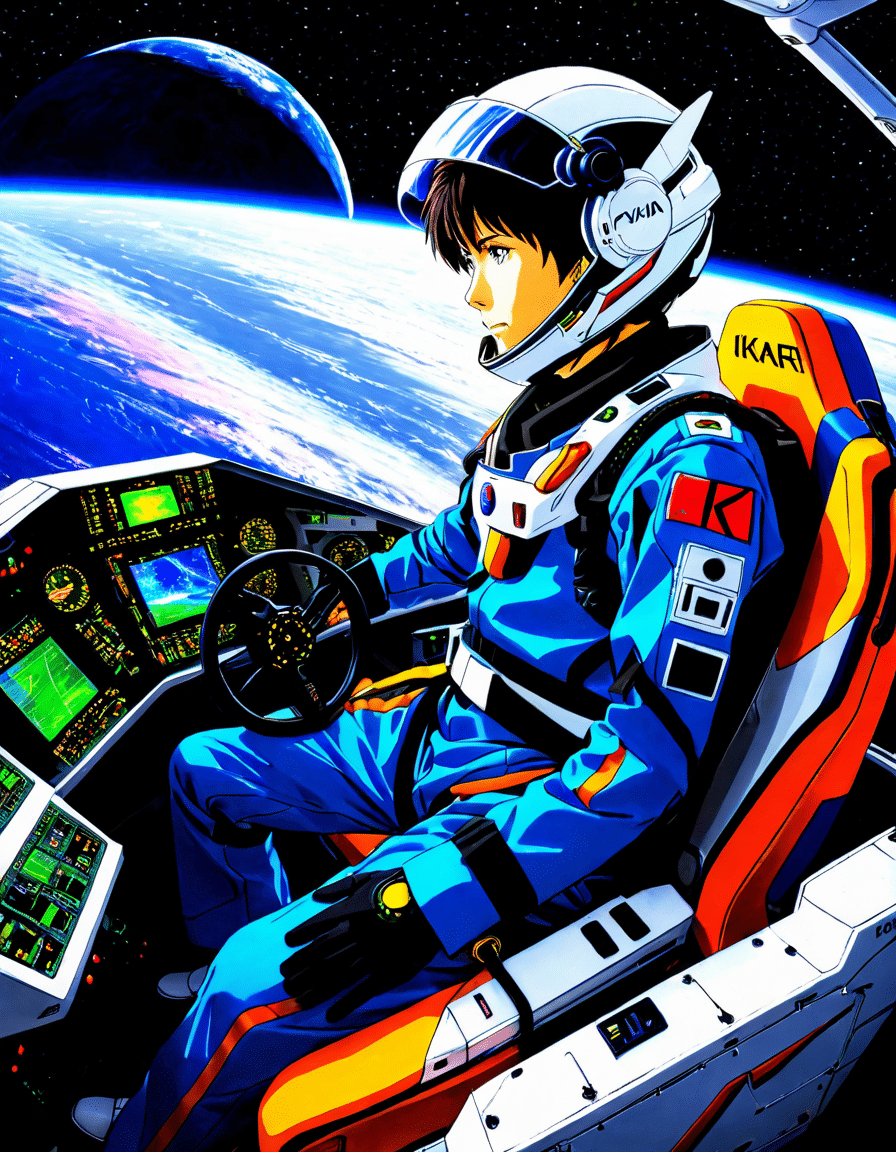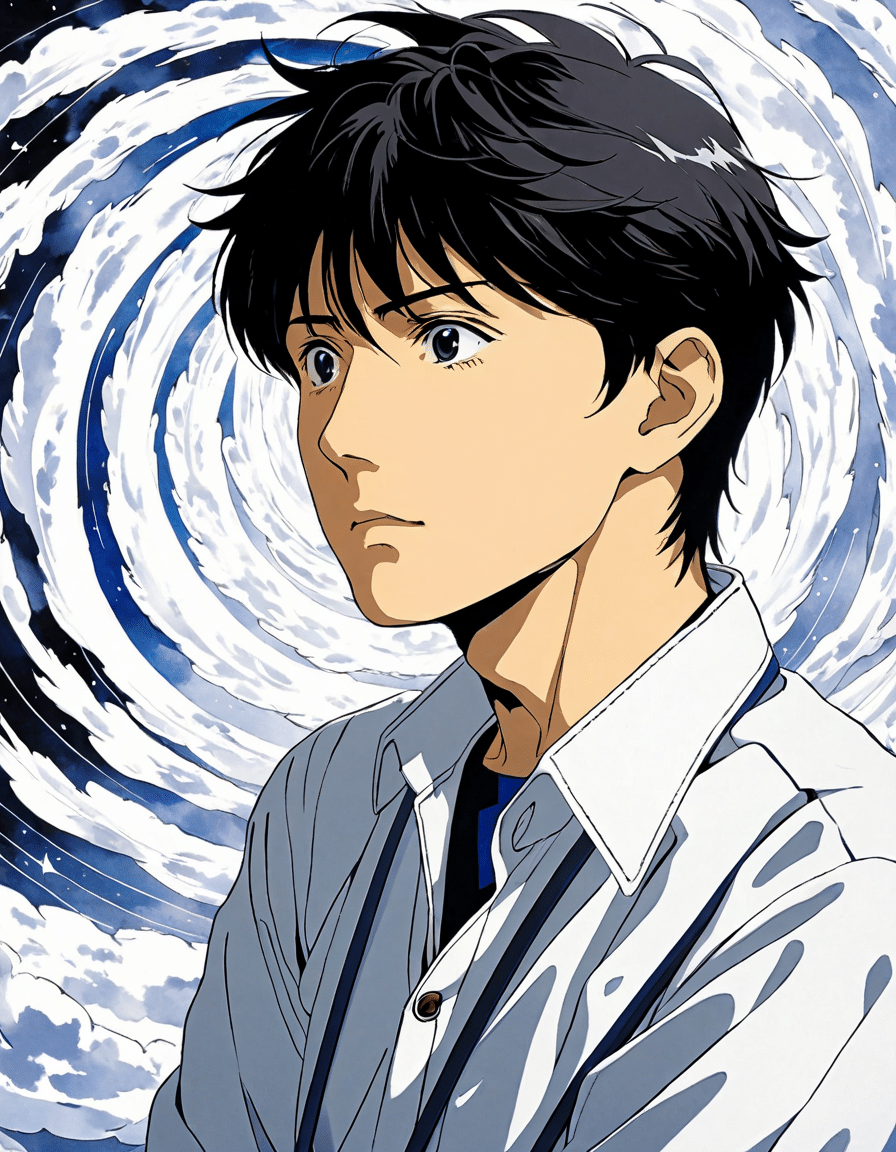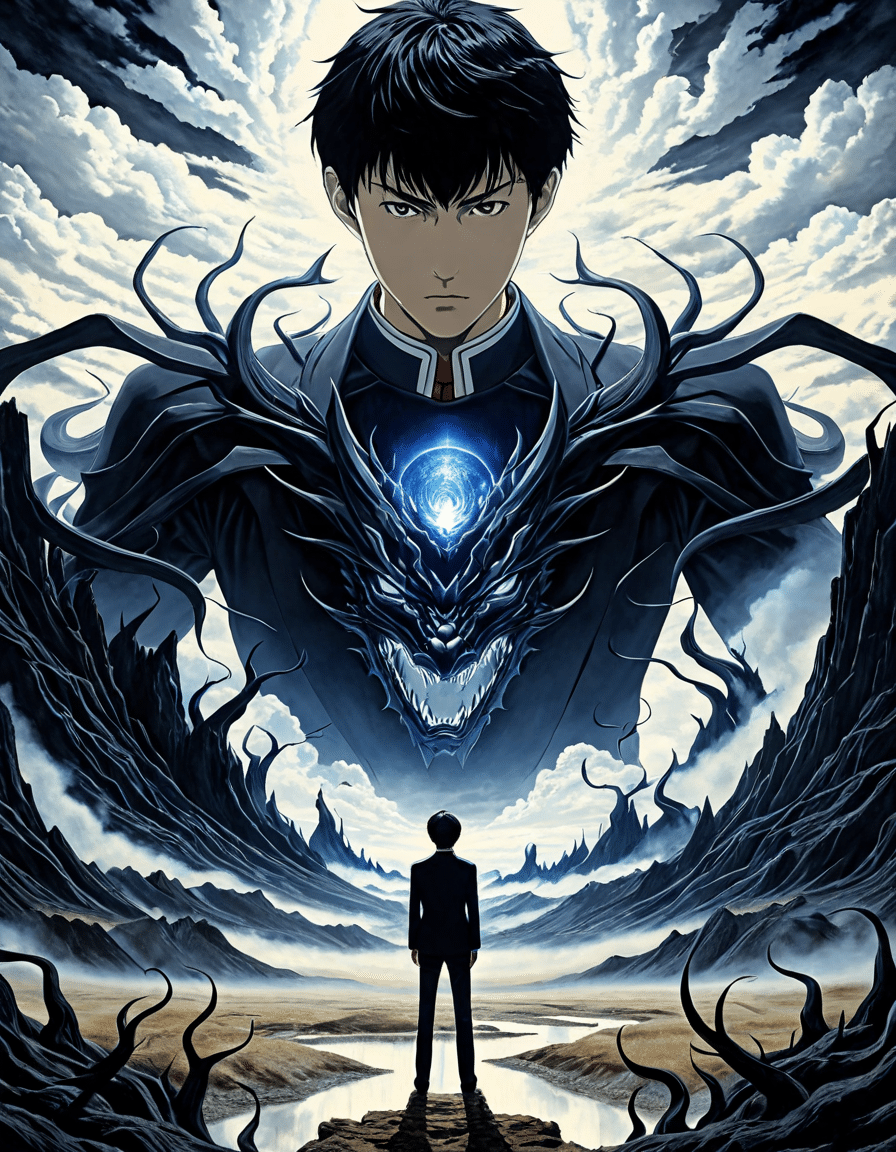Shinji Ikari, the reluctant protagonist of the iconic anime series Neon Genesis Evangelion, has become a symbol of depth in character design, captivating film enthusiasts and anime nerds alike. His journey through existential dread, emotional turmoil, and self-discovery resonates with audiences worldwide. Shinji’s struggles paint a raw picture of adolescence, alienation, and the quest for identity, making him one of the most compelling characters in anime history. In this article, we’ll dig into how Shinji Ikari’s conflicts stack against those of other notable heroes in the anime landscape, like Ryuko Matoi from Kill la Kill, Emiri Momota from Samurai Girls, and others.

7 Struggles That Define Shinji Ikari
1. The Burden of Expectations
Right from the get-go, Shinji is hurled into the spotlight as an Eva pilot, a monumental task meant to protect humanity from the monstrous Angels. Talk about pressure! With his father Gendo Ikari leading the charge at NERV, the weight of familial expectations crushes Shinji’s self-esteem. Unlike him, Ryuko Matoi, armed with her fierce scissor blade, also faces immense expectations but channels that energy into uncovering the truth behind her father’s demise. This pressure becomes pivotal in shaping both characters’ journeys, but while Ryuko faces the challenge head-on, Shinji often just shrinks away.
2. Alienation and Isolation
One of Shinji’s most profound struggles is his sense of alienation. His inability to connect with those around him fosters a deep loneliness that resonates closely with viewers. Viewers notch their own experiences against Finn’s hopelessness. In stark contrast, Emiri Momota from Samurai Girls thrives on relationships, emphasizing teamwork to rise through the ranks. This juxtaposition speaks volumes about how the need for connection—or the lack of it—can tear at the fabric of one’s identity.
3. Fear of Intimacy
Shinji’s battle with intimacy is palpable in his strained relationships with Asuka Langley Soryu and Kaworu Nagisa. His reluctance to be vulnerable amplifies his isolation, mirroring Reigen Arataka from Mob Psycho 100, who despite similar fears, forges a bond with his student Mob. By exploring these different shades of vulnerability, both characters reveal the complexity of human connections in unique ways, showing that opening up can be as daunting as fighting an Angel.
4. Manifestation of Trauma
The psychological effects of battling Angels leave lasting scars on Shinji. Each encounter chips away at his already fragile psyche, forcing him to reckon with the trauma of war. Ren Watabe from Dive!! similarly faces trauma, but his journey revolves around self-worth and competition in sports. The stark difference in their narratives illustrates how experiences shape one’s identity, driving home that pain can manifest in different ways, yet equally shape who we are.
5. Identity Crisis
At the core of Shinji’s journey lies a profound identity crisis. Balancing between his own desires and the crushing expectations from Gendo, Shinji wrestles with who he truly is. Himiko Toga from My Hero Academia faces a similar battle, albeit through chaos and violence. Both characters unveil how the struggle for self-acceptance can lead them down diverse paths, one painfully contemplative and the other chaotic and disruptive.
6. Escapism and Denial
Often, Shinji seeks refuge from harsh realities, retreating into the simulated scenarios of the Human Instrumentality Project. This tendency to escape reflects a universal desire to find solace in alternate worlds. Eimi Fukada, a figure known in the adult film industry, finds her own form of escapism, showing that the urge to transcend one’s circumstances can take numerous forms. Both characters illustrate the complexity of escapism in navigating their respective traumas.
7. The Search for Purpose
Shinji’s quest for meaning in a chaotic landscape is perhaps one of his most driving forces. Tsunade from Naruto embodies a different kind of search, aspiring for leadership and recovery while battling her inner demons. Both figures illuminate how personal struggles can be harnessed into a mission or a purpose, showcasing the diverse philosophies of finding meaning in one’s journey.

The Multifaceted Nature of Heroism
Through the lens of Shinji Ikari, we uncover that heroism isn’t just about valiant sacrifices or showy displays of strength. His true complexity lies in his vulnerabilities, struggles, and the profound honesty with which he confronts his circumstances. Unlike traditional heroes, Shinji embodies the messy, often uncomfortable reality of being human.
When you juxtapose characters like Shinji with Ryuko Matoi and Reigen Arataka, a richer narrative emerges. These characters demonstrate that the path to heroism can be as winding as it is enlightening. Their journeys prompt us to reflect on our own battles and the strength within us to face them head-on.
The struggles faced by Shinji Ikari and his contemporaries enrich the anime genre, transforming them into vessels for exploring the deepest human experiences. They invite us to confront our own narratives, ultimately urging us to champion the journey of self-discovery. So the next time you’re binge-watching your favorite anime, consider the profound complexities and struggles of characters like Shinji Ikari—heroes in their own right, ever so relatable to viewers like us who continue to seek meaning in this wild adventure we call life.
Shinji Ikari: The Struggles of a Complex Hero
The Origins of Shinji
Shinji Ikari’s character was born from the mind of Hideaki Anno and first introduced in the groundbreaking anime series “Neon Genesis Evangelion.” What’s fascinating is that Shinji’s name translates to “truth” or “reality,” which definitely reflects his struggle with self-identity and emotional truth (and boy, does he grapple with that!). Interestingly enough, the series cleverly intertwines fundamental human emotions with mechanical battles, much like a fusion of a meticulous Chopt salad, where each ingredient plays a role in a tasty whole. This layering adds depth, making viewers question reality just like Shinji does.
Trivia That Sticks
Did you know that Shinji’s character was inspired by Anno’s own battles with depression? This raw portrayal has resonated with audiences, making the series almost therapeutic for fans exploring their inner struggles. A riveting aspect of this is how fans create connections through memes and GIFs, using tools like a twitter Gif Downloader to express their admiration and relate to the character’s journey. It’s a testament to how Shinji’s emotional turmoil transforms into shared experiences, turning his angst into artistry. Another fun tidbit: Shinji was once dubbed “the perfect ass in fan discussions due to his charm despite his flaws! This amusing duality adds to why fans across the globe are drawn to him.
Surrounding Influences
The world surrounding Shinji is just as gripping. From his relationships with characters like Rei and Asuka to the bigger narrative of humanity’s survival, every aspect drives his evolution. Consider how Shinji encapsulates the struggle for connection, much like the experience of playing coop Stardew valley, where teamwork is essential, yet often fraught with misunderstanding. As fans dive deeper and analyze the symbolism behind the Eva units and themes of existentialism, they discover layers akin to the interwoven themes in Luxure, portraying the darker sides of humanity.
And, if you want an animated reflection of resilience, Scott Jennings broke it down perfectly in his analysis of the series. Plus, his commentary adds a layer of charm like when William Regal drops a solid wrestling move in the ring, blending art and emotion seamlessly! Through all these tribulations, Shinji is a reminder that the journey toward self-acceptance is messy, unpredictable, and often surprisingly relatable.





